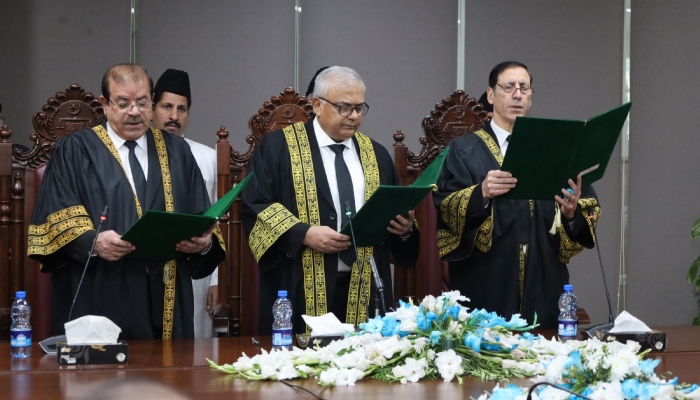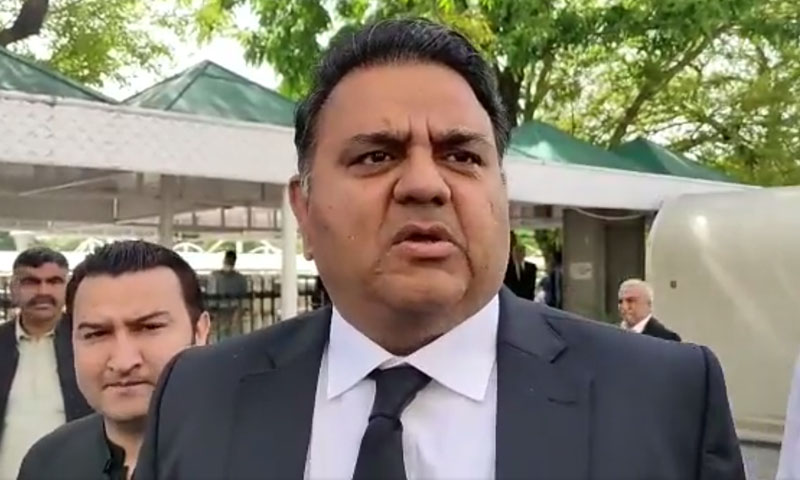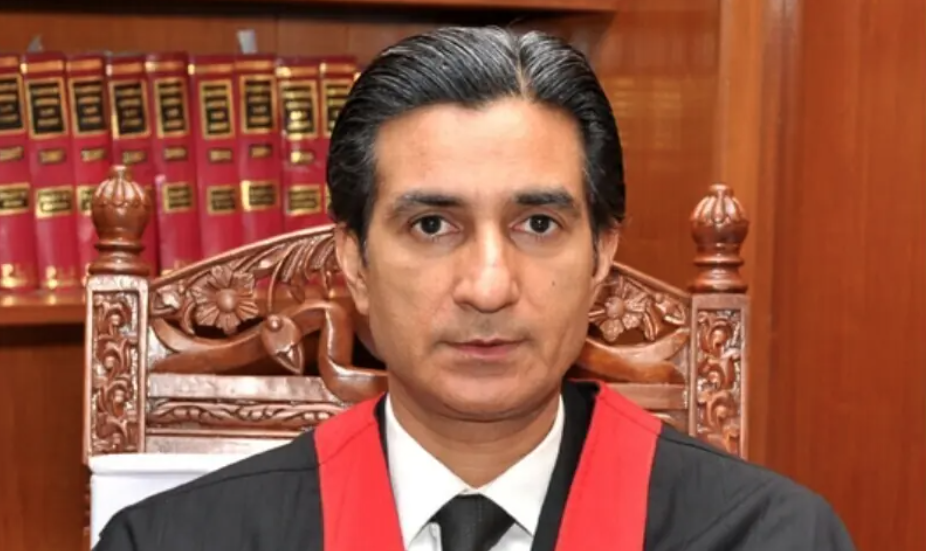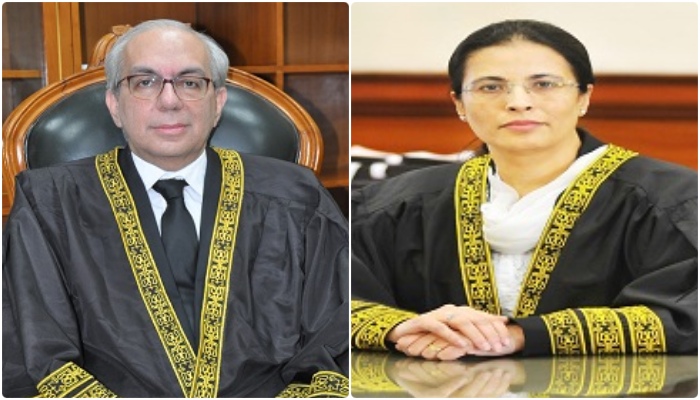LEGAL

Two additional judges of the newly created Federal Constitutional Court (FCC) were sworn in on Monday, marking another step in the operationalisation of Pakistan’s latest judicial body amid mounting criticism and legal challenges.
FCC Chief Justice Aminuddin Khan administered the oath to Justice Rozi Khan Barrech and Justice Arshad Hussain Shah during a ceremony held in Islamabad. Both judges vowed to uphold the Constitution and discharge their duties faithfully and honestly.
The FCC’s roster continues to grow, with Justices Syed Hasan Azhar Rizvi, Aamer Farooq, Ali Baqar Najafi, and KK Agha having taken oath over the weekend. A source earlier disclosed that Justice Shah's appointment was finalised after Supreme Court’s Justice Musarrat Hilali reportedly declined to join the new constitutional court.
President Asif Ali Zardari appointed Justice Aminuddin as the chief justice of the FCC last week, following his assent to the 27th Constitutional Amendment — the legislative foundation for establishing the FCC. According to officials, the initial strength of the court was determined by presidential order, with any future expansion requiring parliamentary approval.
The government maintains that the creation of the FCC aims to ease the Supreme Court’s workload, ensure timely adjudication of constitutional matters, and bolster judicial independence. The court began functioning on Friday under temporary arrangements, as its permanent premises have not yet been finalised.
However, the inauguration of the FCC has been overshadowed by controversy. Five senior judges of the Islamabad High Court boycotted the oath-taking ceremony, questioning the criteria used for appointments. Critics argue that if seniority is to be considered, most of the appointees — aside from Chief Justice Aminuddin — rank below former members of the now-defunct Constitutional Bench of the Supreme Court, several of whom were overlooked.
Legal Challenge Filed in Sindh High Court
In a significant development, a petition challenging the formation of the FCC was filed in the Sindh High Court (SHC) by Barrister Ali Tahir. The Federation of Pakistan, through the Ministry of Law and Justice, and all appointed FCC judges, including Chief Justice Aminuddin, were named as respondents.
The petition argues that the FCC’s formation through the 27th Constitutional Amendment undermines the constitutional jurisdiction of the superior judiciary. It alleges that the new court, if allowed to function, would “fundamentally alter the constitutional framework,” compromise judicial independence, violate the separation of powers, and restrict citizens’ access to justice and judicial review.
The petitioner also claimed the executive sought to “build a tailor-made court for himself,” calling for the 27th Amendment to be struck down entirely. It further requested a writ of quo warranto against the appointees and asserted that no tribunal or bench constituted under the amendment should be allowed to decide on its own constitutionality.
The petition seeks to have the matter heard by a full bench of the SHC comprising judges who are not beneficiaries of the 27th Amendment.
As the FCC begins its work, the growing legal and institutional challenges suggest that the debate over its legitimacy and purpose will continue to dominate Pakistan’s judicial and political discourse.




